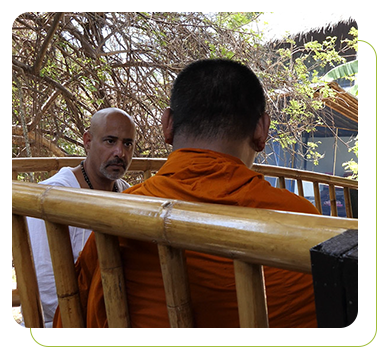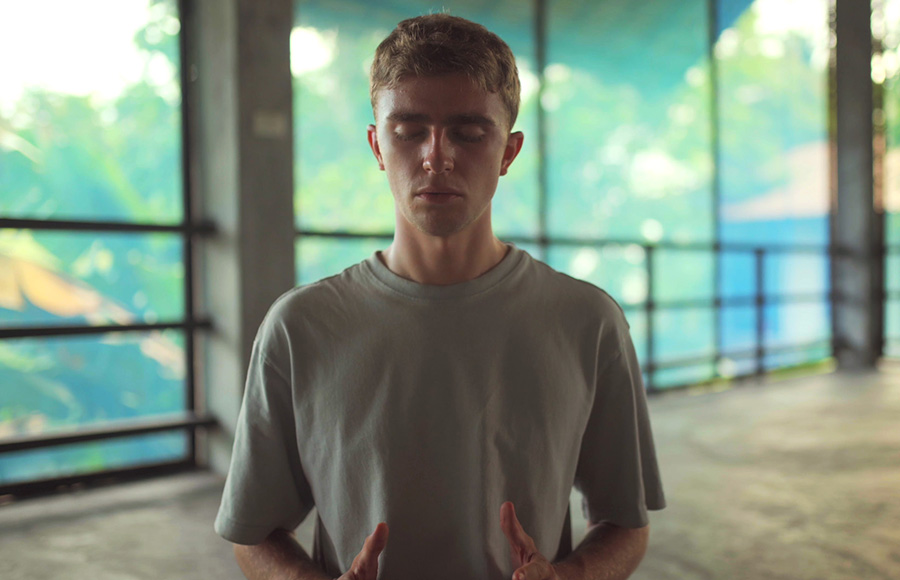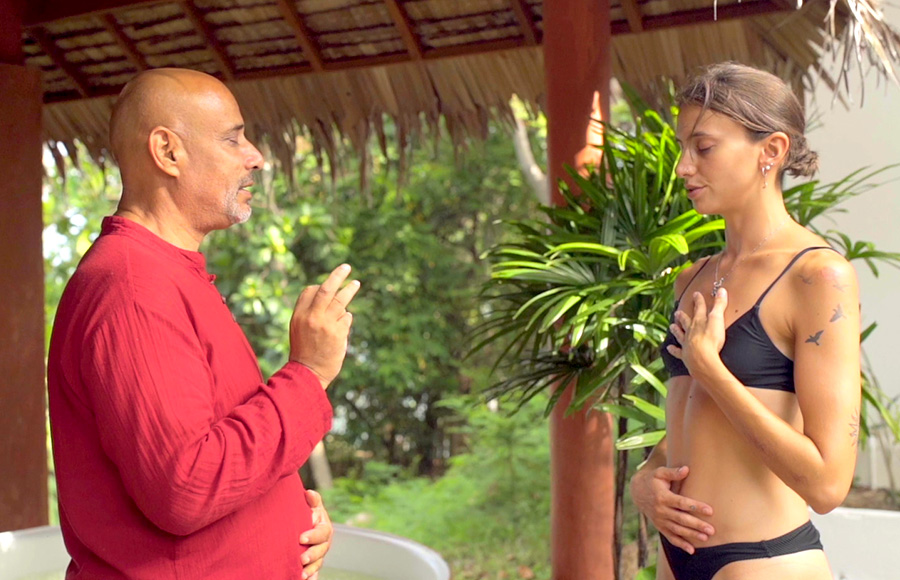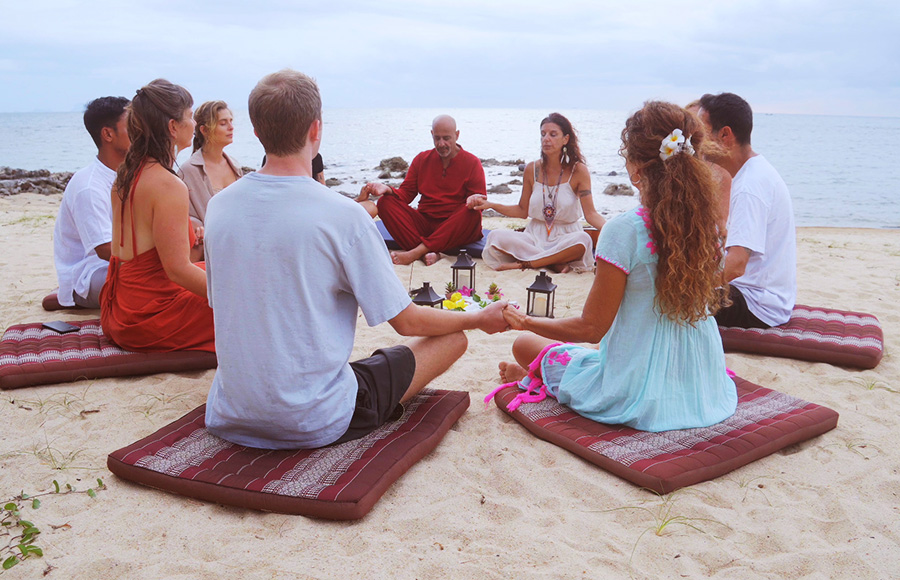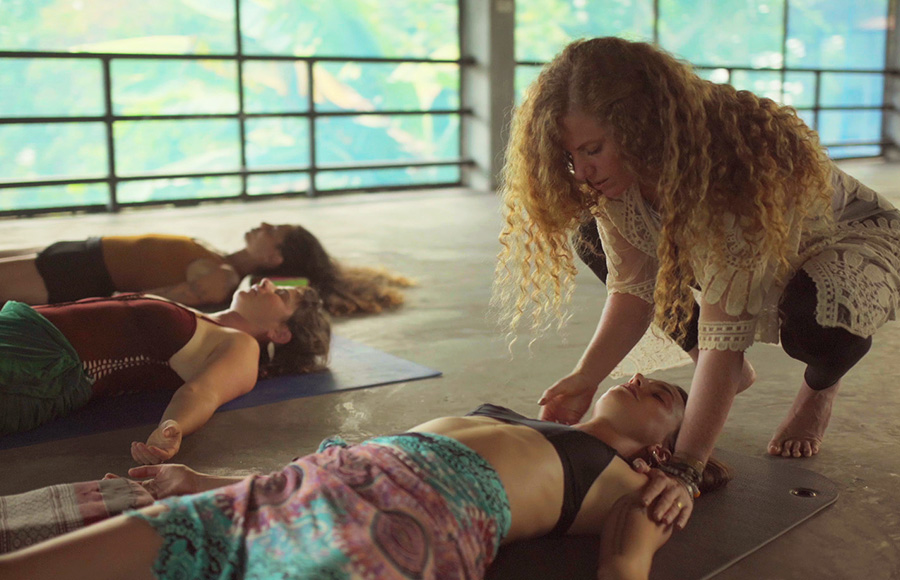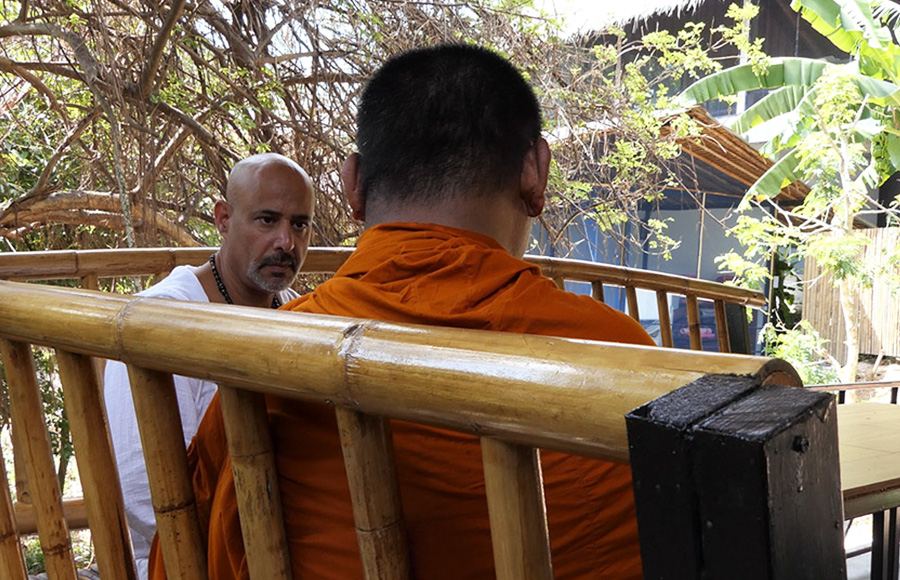When Connection Becomes the Hardest Part
Addiction doesn’t only harm the person using — it ripples outward, touching every relationship along the way.
Trust fades. Communication breaks down. Love becomes entangled with fear, anger, or exhaustion.
For many entering recovery, the greatest pain isn’t just what they lost — it’s who they lost.
But healing is possible.
At Holina Rehab Thailand, we help clients rebuild relationships not through guilt or pressure, but through honesty, empathy, and change that’s felt — not promised.
Because recovery isn’t only about abstinence. It’s about reconnection — to self, to others, and to love.
The Impact of Addiction on Relationships
Addiction reshapes relationships in profound ways.
It often turns communication into conflict and closeness into chaos.
Partners, parents, and friends may swing between enabling and anger, trying to help but feeling helpless.
The emotional toll can include:
Broken trust from lies or secrecy
Codependency and emotional burnout
Financial and safety stress
Neglect of intimacy and communication
Shame, guilt, and resentment on both sides
These wounds don’t disappear simply because someone becomes sober.
They require time, consistency, and guided repair — the kind of deep healing that begins in recovery and continues long after.
At Holina, we teach that relationship healing is not about apologies — it’s about alignment.
It’s about living differently, not just saying “I’m sorry.”
Why Addiction Damages Trust
Trust is the foundation of all relationships — and addiction erodes it silently over time.
The lies told to hide use, the broken promises, the emotional absence — all chip away at safety.
Even when the person in recovery is genuinely changing, loved ones may still feel anxious or skeptical.
This is natural. The brain and heart both need proof over time that new patterns are real.
At Holina, we help clients understand that rebuilding trust isn’t about perfection — it’s about presence.
Trust grows not from words, but from consistent honesty, vulnerability, and reliability.
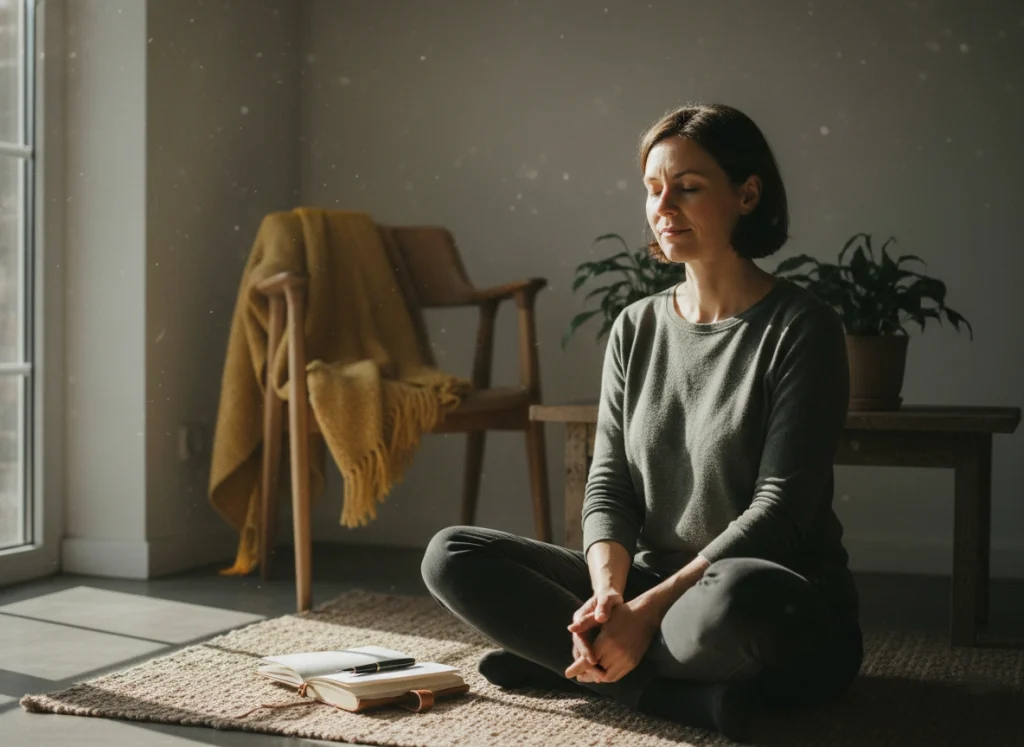
Healing Starts with Self-Repair
Before relationships can heal externally, they must heal internally.
Addiction disconnects people from their own integrity, self-worth, and boundaries.
In recovery, clients first learn to rebuild that relationship with themselves.
Through therapy, mindfulness, and self-reflection, they learn to:
Forgive themselves for past actions
Take responsibility without shame
Reconnect with values and purpose
Develop healthy self-compassion
Only when someone feels grounded in self-trust can they rebuild trust with others.
As one Holina therapist says:
“You can’t repair a bridge if the foundation is still cracked. Healing yourself is healing your relationships.”
The Holina Relationship Healing Framework
At Holina Rehab Thailand, we use an integrated approach to relationship repair — addressing both emotional patterns and communication habits.
Our framework includes:
Individual Therapy — exploring the root causes of relational wounds and personal triggers.
Family Therapy — guided sessions to rebuild understanding, empathy, and communication.
Codependency and Boundaries Work — teaching both sides how to love without control or fear.
Group Process — learning vulnerability and relational honesty in community.
Aftercare Support — continued guidance for reintegrating relationships after rehab.
This comprehensive model recognizes that relationships can’t be forced to heal — but they can be nurtured back to trust, one conversation at a time.
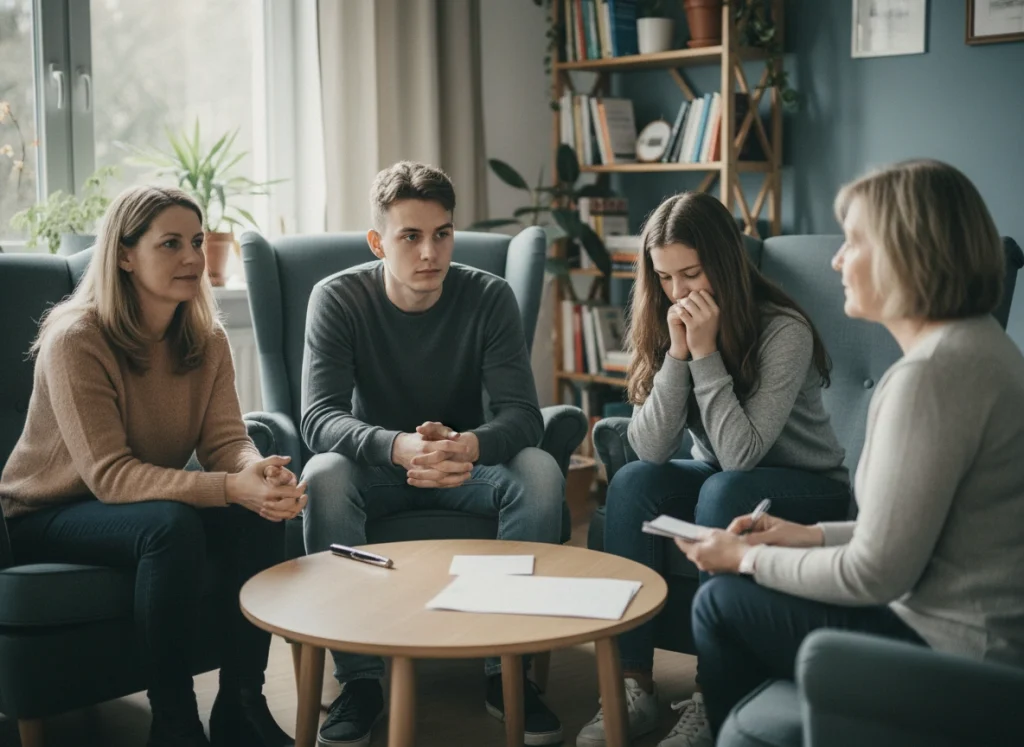
Family Therapy: Where Healing Begins Together
Family therapy at Holina is one of the most powerful parts of the healing process.
In these sessions, loved ones have a safe space to express hurt, confusion, or grief — while learning how to support recovery without enabling old patterns.
Common goals include:
Rebuilding empathy and emotional understanding
Re-establishing communication based on honesty and respect
Clarifying healthy boundaries
Recognizing shared pain and shared hope
These sessions are facilitated with compassion and structure.
Clients learn to listen without defending. Families learn to speak without blaming.
Together, they begin to rediscover what love looks like when it’s healthy.
Codependency: When Love Turns Into Survival
In families affected by addiction, love can often take on a survival quality — intense, anxious, or controlling.
This pattern, known as codependency, arises when one person’s wellbeing becomes dependent on another’s behavior.
It can look like:
Constant rescuing or enabling
Suppressing one’s own needs
Walking on eggshells to keep the peace
Feeling guilty for setting boundaries
At Holina, we help clients and families recognize that boundaries aren’t rejection — they’re protection.
Healthy love allows space for individuality, responsibility, and truth.
In therapy, both sides learn that love doesn’t mean losing yourself for someone else.
It means standing beside them while standing firmly in your own peace.
Communication: The Bridge Back to Connection
When trust is broken, communication often becomes defensive or avoidant.
Holina’s communication workshops teach practical tools to restore openness and respect.
Clients and families learn to:
Speak with honesty and empathy
Listen to understand, not react
Express feelings without accusation
Ask for needs clearly and kindly
These simple yet powerful tools often bring immediate relief.
Misunderstandings turn into insight. Silence becomes dialogue.
The walls begin to lower, one honest word at a time.
Forgiveness: A Process, Not a Performance
Forgiveness is one of the most misunderstood aspects of recovery.
It doesn’t mean forgetting, excusing, or rushing reconciliation. It means releasing the emotional weight of resentment so that healing can move forward.
At Holina, forgiveness unfolds naturally as clients take responsibility, express remorse, and demonstrate change.
Loved ones are invited to forgive only when ready — never pressured.
We remind everyone involved: forgiveness is not a gift for the other person. It’s freedom for yourself.
“Forgiveness is how we stop drinking the poison of the past.”
— Holina counselor
Rebuilding Intimacy and Connection
Addiction often numbs emotional and physical intimacy.
In recovery, many clients find it challenging to reconnect with vulnerability — to feel close without fear.
Through mindfulness, emotional awareness, and relational therapy, Holina helps clients rediscover intimacy as presence, not performance.
It’s about being emotionally available, honest, and gentle — learning to love without losing oneself.
Holina’s trauma-informed approach ensures that intimacy work always prioritizes safety and consent.
Clients learn that connection is built not through perfection, but through shared authenticity.
The Role of Boundaries in Recovery
Boundaries are love in practice. They create safety for everyone involved.
For clients, boundaries mean knowing their limits — what environments, conversations, or people might threaten their recovery.
For families, boundaries mean supporting recovery without over-controlling it.
Holina’s therapists guide both sides in setting clear, compassionate boundaries — agreements that honor self-respect while maintaining connection.
Examples include:
Scheduling regular, honest check-ins instead of constant monitoring
Allowing natural consequences rather than rescuing
Creating routines that prioritize both connection and independence
Boundaries, when done with care, rebuild trust — because they show that everyone is taking responsibility for their part in healing.
The Role of Community in Relational Healing
At Holina, the community becomes the first family of recovery.
In group sessions, clients practice vulnerability, empathy, and forgiveness. They learn that relationships can be safe again.
This community support often models what healthy connection looks like — boundaries respected, emotions validated, and authenticity encouraged.
When clients re-enter their family systems, they bring these new relational patterns with them.
Many loved ones describe noticing immediate changes — calmer communication, emotional honesty, and genuine presence.
This is the quiet power of community healing: it trains the heart to relate in healthier ways.

Restoring Self-Worth: The Heart of Relationship Healing
Broken relationships often leave behind shame — the belief that one is unworthy of love or forgiveness.
Holina’s therapeutic process helps dismantle that belief through self-compassion and accountability.
Clients learn that they are not defined by their past mistakes, but by their willingness to grow.
They learn that love doesn’t need to be earned through perfection — it flows naturally when authenticity returns.
Reconnecting with self-worth is what allows clients to give and receive love again — not as apology, but as truth.
Healing Through Time and Consistency
Relationship repair is not instant — it’s gradual, often nonlinear.
There will be tears, silence, laughter, and moments of doubt. But each honest moment is a step forward.
At Holina, clients practice “living amends” — showing through daily actions that recovery is not a performance, but a way of being.
This consistency rebuilds credibility and comfort over time.
As trust returns, love naturally follows.
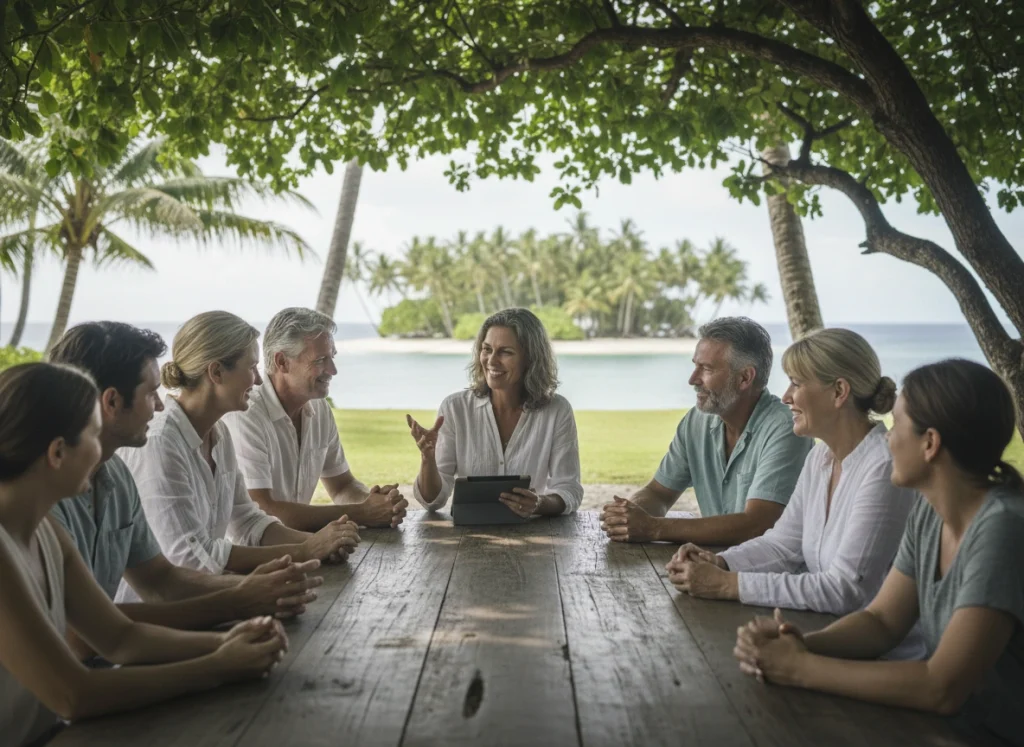
Aftercare: Continuing Relationship Growth Beyond Holina
Healing relationships doesn’t stop when the program ends.
Holina’s aftercare program includes:
Ongoing family and couples therapy sessions online
Alumni community support for clients and loved ones
Guidance for communication and relapse prevention planning
These touchpoints ensure that the healing process continues long after leaving the island.
Many families remain connected to Holina for years — not out of need, but gratitude.
Real Stories of Reconnection
“I thought I’d lost my family forever. But when they saw that I was truly changing — not just saying it — we started to heal together.”
— Holina graduate, UK
“Family therapy at Holina helped me forgive, not just my loved one, but myself.”
— Parent of client, Australia
“Recovery gave me back my honesty. And honesty gave me back my marriage.”
— Holina client, Singapore
These stories show that reconciliation isn’t a fantasy. It’s a process — one rooted in humility, presence, and love.
FAQs About Relationship Healing at Holina Rehab
Q1: Will my family be involved in my treatment?
Yes. Family therapy and communication sessions are core parts of Holina’s program, offered in-person or virtually.
Q2: What if my family doesn’t want to participate?
Healing can still begin with you. When one person changes, relationships often evolve naturally.
Q3: Can couples attend therapy together at Holina?
Yes. We offer structured couples sessions to help rebuild trust and intimacy in safe, guided ways.
Q4: What if relationships are too toxic to repair?
Therapists will help you discern which connections can heal and which may require loving distance.
Q5: How long does it take to rebuild trust?
There’s no fixed timeline — it depends on consistency, honesty, and communication. But every act of integrity moves healing forward.
Conclusion: Love After Addiction Is Possible
Addiction may break trust, but it doesn’t break love.
With truth, patience, and care, relationships can be rebuilt stronger than before — more honest, more compassionate, more real.
At Holina Rehab Thailand, we witness this every day — parents forgiving, partners reconnecting, friends rediscovering laughter.
Because when recovery is rooted in love, healing doesn’t just happen to one person. It happens to everyone around them.
Healing relationships is not about returning to the past — it’s about creating something new, built on truth and tenderness.
Begin your healing journey with Holina today.
Get back to yourself — and back to those who matter most.
About Me
Ian Young
Ian Young is the Global Manager at Holina Care Centres in Koh Phangan, Thailand. Ian oversees the rehabilitation programs that blend the 12 Step model, Psychology, Counselling, Coaching, Somatic and many other therapeutic engagements, alongside various evidence-based therapies with holistic healing practices. Holina Rehab treats addictions, trauma, anxiety, depression, and other emotional challenges, offering comprehensive care in a serene resort environment. Ian, a charismatic speaker and author of “It’s Not About Me” leveraging his own recovery journey from addiction to inspire and guide others toward a fulfilling, addiction-free life.
Recent Blogs
-
29 Jan, 2026
The Ultimate Guide to 12-Step Rehab in Thailand


















